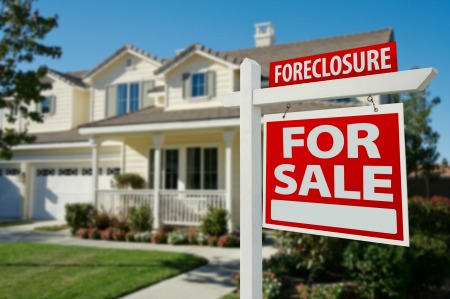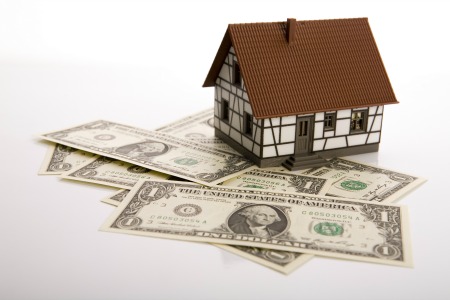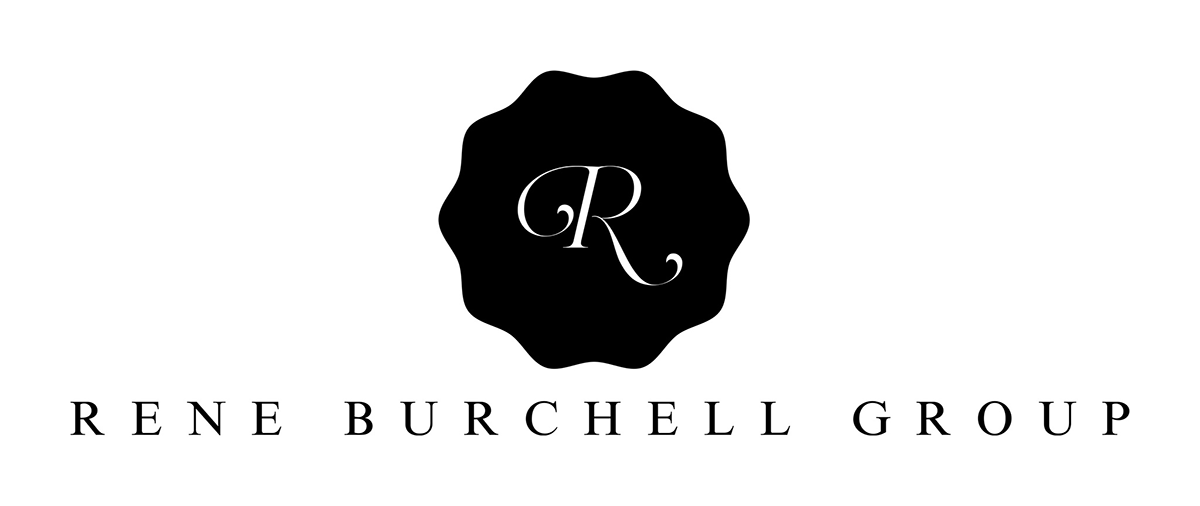Buying a foreclosure property may seem like a tempting idea. We are saturated with television shows, advertisements, and social media suggestions that it’s easy to save a ton of money by purchasing a house that’s in foreclosure versus a traditional home purchase. While it is true that you can save substantially by purchasing a foreclosure, it is equally true that the risks involved could potentially cost you thousands upon thousands of dollars in losses if you’re not careful. Foreclosure transactions are not all the same, but it is fair to say that the level of risk likely matches the potential for savings in any foreclosure transaction. You’re probably familiar with the scenario where a person looks at their dream house and knows it’s out of financial reach, but a foreclosure with a few fix-it projects could be a diamond in the rough. Here a guide for how to buy a foreclosure property.
Define Your Purpose
 One of two reasons likely represent the probability of why you’re considering the purchase of a foreclosure property. Either you’re considering an investment property that you can flip for profit, or you’re interested in a personal residence at substantial savings. Your reason for thinking about buying a foreclosure will influence your decisions going forward. If you’re an experienced investor with financial room for risky mistakes, you’re more likely to take bolder chances. However, if you’re just getting started in investment properties or you’re looking for a home for yourself and your household to reside and build memories, you stand to lose much more than designated investment money if you’re not careful.
One of two reasons likely represent the probability of why you’re considering the purchase of a foreclosure property. Either you’re considering an investment property that you can flip for profit, or you’re interested in a personal residence at substantial savings. Your reason for thinking about buying a foreclosure will influence your decisions going forward. If you’re an experienced investor with financial room for risky mistakes, you’re more likely to take bolder chances. However, if you’re just getting started in investment properties or you’re looking for a home for yourself and your household to reside and build memories, you stand to lose much more than designated investment money if you’re not careful.
Funding Your Foreclosure Purchase
Before you decide whether to purchase a foreclosure, have a solid grasp on your finances. In some situations, the only option to purchase a house that’s been foreclosed upon is to pay cash, as-is. Other times, however, you can obtain a conventional home loan, or a specialized loan tailored to foreclosure investments. Whether you’re paying cash out-of-pocket or financing your loan, expect the unexpected financially.
Not every foreclosure property affords you the opportunity to inspect the house ahead of time, so there’s no way of knowing how much damage the owners did to the inside, or what harm was caused from lack of proper maintenance. You may find yourself neck-deep in repair projects. And you don’t want to be house poor, so it’s still important to secure an emergency fund as well as your nest-egg for maintenance and repairs.
If you are not paying cash, you will find it necessary to obtain pre-approval for your home mortgage loan before you submit offers. Lenders considering short-sale or other foreclosure properties want to verify that you’re a serious, empowered buyer who is ready to take action, and not just someone who is browsing for properties on wishful thinking.
Understanding the Definition of a Foreclosure Property
Foreclosure isn’t a synonym for savings. Although it’s true you have the potential to save when buying foreclosed properties, the reality is that a foreclosed upon property is one where the homeowner was no longer able to pay his or her monthly expenses and defaulted on the home mortgage loan. Sadly, when this is the case, homeowners in default often times stop taking care of their house. The harm caused by lack of maintenance may be minor or could be devastating. There’s another term for foreclosure, and that’s distressed property. The property is in distress because the owner can no longer maintain the property or the financial commitment. But foreclosures come in different varieties and stages, each with its level of savings and risks.
Buying the Owner’s Debt | Avoiding Liens
 One hidden pitfall many buyers don’t see coming is the potential of accidentally accepting responsibility for the previous owner’s financial shortcomings. For example, if the owner was in default to more than just his or her mortgage lender, it’s possible creditors, or even the government, have placed liens on the property. In some foreclosure situations, the liens are satisfied before ownership is transferred. However, it is possible for the buyer to “buy” the liens as well as the house. When you buy a foreclosed property that has liens attached, you must satisfy those debts before you can sell the property to someone else.
One hidden pitfall many buyers don’t see coming is the potential of accidentally accepting responsibility for the previous owner’s financial shortcomings. For example, if the owner was in default to more than just his or her mortgage lender, it’s possible creditors, or even the government, have placed liens on the property. In some foreclosure situations, the liens are satisfied before ownership is transferred. However, it is possible for the buyer to “buy” the liens as well as the house. When you buy a foreclosed property that has liens attached, you must satisfy those debts before you can sell the property to someone else.
The Various Types of Foreclosures
A Short Sale is a scenario in which the homeowner still occupies and has control over the property, but is in what may be deemed a grace period in which they have a set amount of time to produce payment, sell the property, or accept the hard credit knock of being foreclosed upon completely. In a short sale, the seller may list an asking price that is far below market value, and less than what he or she owes on the home mortgage loan. Buyers can submit offers of any numeric value. However, contrary to a traditional sale where only the seller need accept an offer, short sales require that the lender also accept the offer. Additionally, investors may also be involved and have to approve any deals. There’s no guarantee the lenders will accept an offer. However, lenders know that the process of foreclosing on a property is expensive and time-consuming, so they may prefer to cut their losses, recoup as much as they can, and allow the property to sell. Many short sale scenarios do enable the buyers to pre-inspect the property, but with no rights to request repairs or negotiations based on inspection findings. In a short sale, any liens on the property are satisfied first with the rest of the proceeds going to the bank.
Auctions are another option for purchasing a foreclosure property. If the short sale doesn’t work, the property may be sent to auction. Auctioned properties offer the most savings financially, but they also pose the highest risk. When buying houses at auction, cash purchases are mandatory and immediate by way of cashier’s check. A property is assigned a starting bid, and then is awarded to the highest bidder. When a home is auctioned, buyers have no ability to inspect the home before purchasing, so there are no guarantees whatsoever. You may be purchasing plumbing problems, electrical malfunctions, pest infestations, or other significant and expensive problems. Also, when you purchase from an auction, you lose the benefit of working with a real estate agent. At auction, you put your money in what you perceive to be the house with the most value and potential, and it’s a road you go alone with consequences that are yours to curse or celebrate.
Real Estate Owned, or REO, is another kind of foreclosure. When a home goes to auction, and no one places the minimum bid, the house defaults back to the lender. You may find lenders listing these properties on their website as homes for sale. Furthermore, because the bank is eager to rid themselves of the property, you may find REO properties at far below market value. On the down side, however, bank-owned properties are difficult to determine the value of because the bank has no records of maintenance or lack thereof.
Government-owned properties are another type of foreclosure. The government sometimes insures or backs home mortgage loans for buyers who are in the military, are minorities, or who have less than the standard down payment, whose credit scores may be less than desirable, or whose income places them in a bracket to receive assistance with purchasing a home. These homeowners also go into default from time to time, leaving the government in ownership of a home it never intended to buy. As with real estate owned properties, the government may be willing to offer up the property at less than market value, but as-is, with no guarantees of condition or quality. And, as with auction homes, you may not have the opportunity to inspect the property ahead of time.
Creating a Realistic Timeline
 Aside from the financial risks of purchasing a foreclosure wherein you might accidentally also buy the previous owner’s debt or the risk of purchasing a property that is in major disarray and disrepair, you also need to contend with a different timeline when buying foreclosures than you do with traditional transactions
Aside from the financial risks of purchasing a foreclosure wherein you might accidentally also buy the previous owner’s debt or the risk of purchasing a property that is in major disarray and disrepair, you also need to contend with a different timeline when buying foreclosures than you do with traditional transactions
When an offer is made on a traditional property, and the seller accepts, the ball is rolling towards closing day. On the contrary, when an offer is made on a foreclosure, multiple parties must agree to the terms. It’s not uncommon for buyers to experience numerous rejections on a plethora of properties before the right deal at the right time presents itself. In other words, you can’t be in a hurry to buy a foreclosure property. The savings from market value may be in exchange for larger investments of time and patience.
Finding the Right Real Estate Agent
Real estate agents are unique and diversified. No two agents are created equal. When you seek out a real estate agent, you’re looking for an agent who specializes in the neighborhood in which you’d like to live – and with foreclosures, you can shop in neighborhoods you otherwise might not be able to afford. You’ll look for a professional who has terms with which you are agreeable, with whom you can easily communicate, and who wins your trust over other agents during interviews. But you also want an agent who specializes in foreclosed properties.
Short sale specialists are real estate agents who work primarily with distressed property owners before the banks repossess the property. These agents have earned expertise not only in real estate law but also in the subtle details that set foreclosures apart from traditional real estate sales. These agents have knowledge that other agents lack that may save you thousands of dollars, or that could expedite your home-buying process.
Conclusion
Saving money by purchasing a foreclosed property is a lofty goal and one that many buyers successfully attain. With the right agent, planning, preparation, and patience, you could find a distressed property for thousands and thousands less than what you’d pay in a traditional sale. But the ugly side to that foreclosure reality is that distressed homeowners can behave in less than desirable ways, especially if they’re making last attempts to throw blows at a lender with whom they’re angry. In some cases, the damage is light and caused simply from neglect whereas other properties suffer intentional vandalism.
With certain types of foreclosures, you have the right to inspect the property first and make sure it’s not going to pull you in over your head in repairs. However, you won’t have the right to request repairs or negotiate a lower price. In other cases, you are forced into a purchase sight-unseen, meaning you forfeit the opportunity to inspect major systems like plumbing or heat and air, and you accept the property as-is no matter how costly the repairs.
In some foreclosures, financing isn’t an option, and you’ll have to be prepared with tens of thousands of dollars or more out-of-pocket. On the contrary, some lenders have caught on to the foreclosure opportunity and craft loan products that incorporate renovation expenses by loaning the buyer an amount based on “improved value” rather than current market value.
Know your reason for seeking foreclosure properties vs. traditional purchases. When you’re set in your convictions, commit to the financial preparations for down payments, good-faith-deposits, possible inspections, homeowner’s insurance, and other items you may not think of. Then, if you’re financing your purchase, obtain your home mortgage loan pre-approval. With the approval letter in hand, you’re ready to contact real estate agents and begin interviewing for the most qualified agent in your area who specializes in short sales or other foreclosure transactions.
There is a chance you could save substantially by doing your homework, being patient, and hunting down the right opportunity. However, those savings come with great risks; you could be left owning a property that costs more to repair than it did for you to buy. Talk with your real estate agent today, and your lender, to find out if foreclosure properties are right for you.
Call Rene Burchell today at 469-877-3303 to tour available houses for sale in Frisco and surrounding areas.


